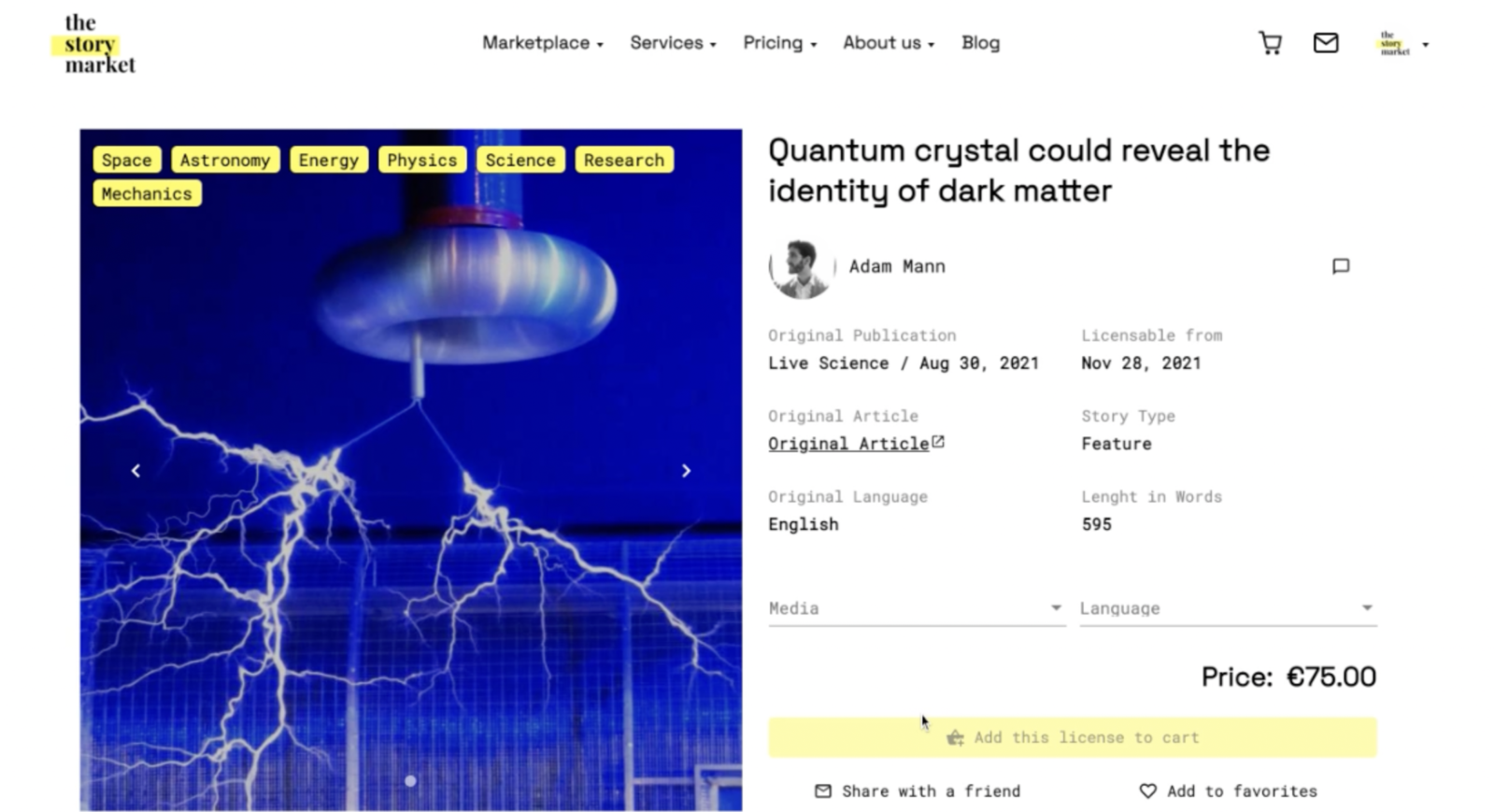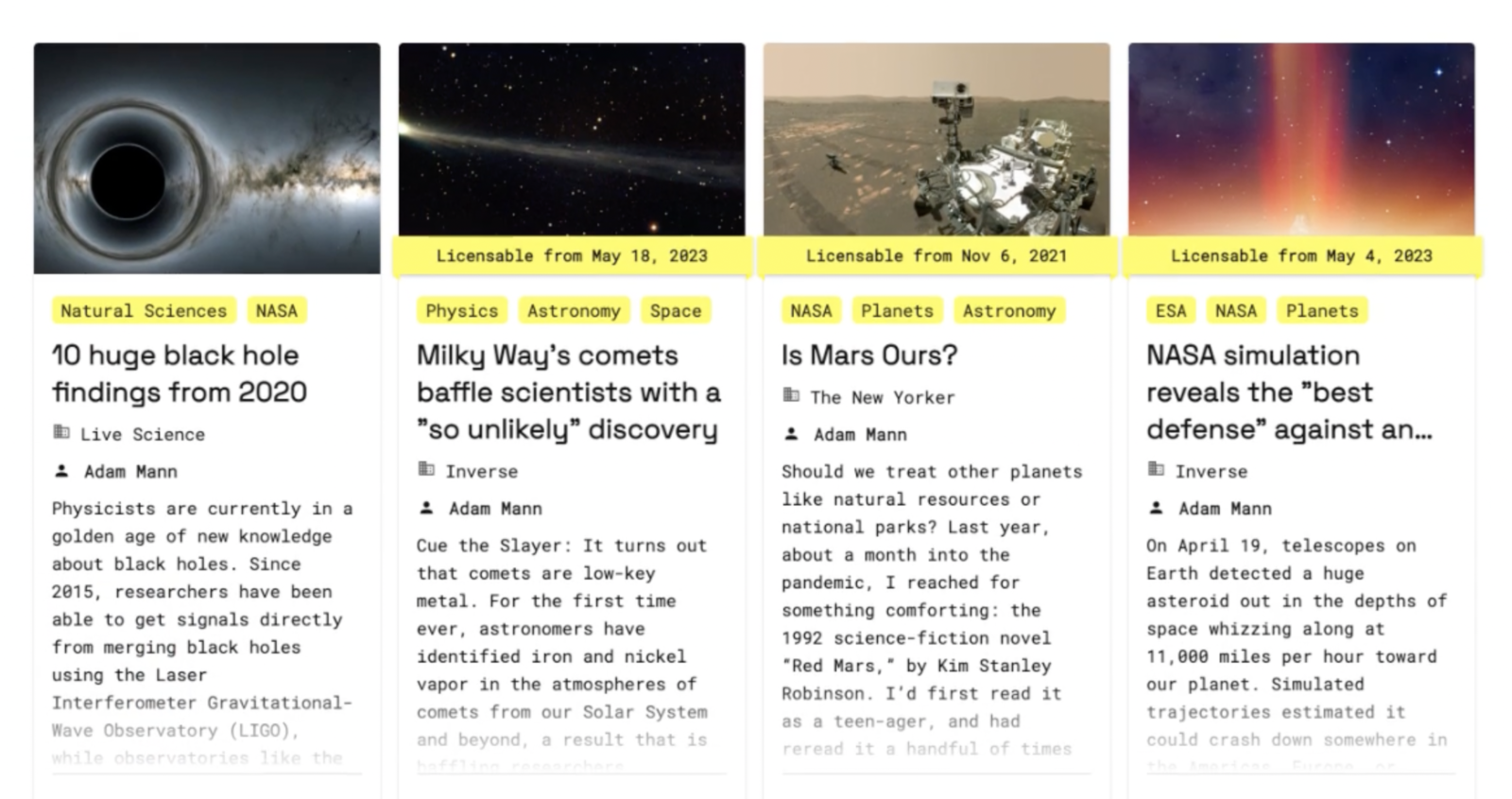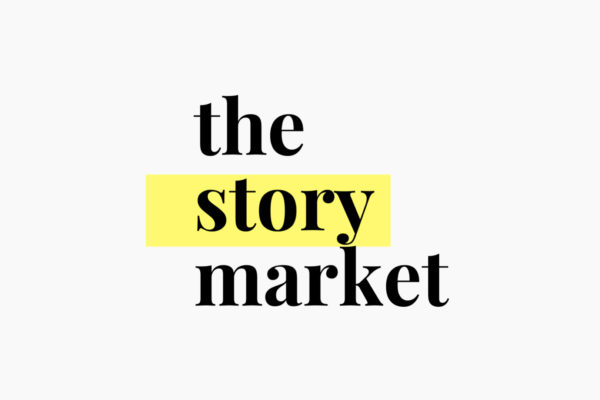The Story Market: Using data & AI to bring international licensing up to speed
The Story Market brings vetted, high-quality, licensable journalism to the international market at scale. Launched in 2020 by co-Founders Doris Wiedemann and Lena Spath, the platform uses data and AI to match publications with relevant content. Here, in this exclusive interview for FIPP, the pair provide background on how the idea came about, a look at how it physically works, and an insight into the development of different pricing options at a time when the industry is pivoting towards membership and subscription revenue streams.
Originally studying Middle Eastern Studies and setting her sights on war journalism, Lena Spath was working in Iran when she realised that there was a need for a platform capable of bringing stories – particularly those emanating outside of the mainstream western media – to wider audiences.
“I actually started working on The Story Market back when I was working in Iran,” says Lena, who is co-Founder and CEO for The Story Market. “I was an author and consultant there and wrote a book about interior design. I looked around and asked myself why do we not have so many great stories coming out of Iran to Germany? When there are so many great stories and I can read about them in English for example?”
“So I spoke to a lot of freelance journalists over there, and we realised that there were no German correspondents in the country. This then led to the question of ok, why is there not a third party platform that helps freelancers and also publications to translate stories into other languages, so that readers in all countries can access them?”
Co-Founding the platform and now its CMO, Doris Wiedemann joined Lena in turning this initial concept into commercial reality. Having spent 25 years working with major German media companies including the likes of Axel Springer, Condé Nast Germany, and ProSieben, she immediately recognised the benefits that instantly-licensable content could bring, particularly in the digital sphere.
“As a publisher, if you’re in need of content, you can login to the marketplace and find thousands of texts from – at the moment – freelance journalists. You can buy them with one or two clicks, for a fraction of the original price, and license them in either one or several languages. So if the text was published in The New York Times once in English for example, and you’re a German or a French publisher, you can buy the German or French license and publish it in your outlet, as soon as you’ve bought it.”
“If you need translation, we offer that as well, done by professional journalists. And if you’re a freelance journalist or a publication and you want to resell your stories, you can login to The Story Market as well and offer your texts that are for sale. You always are defining the price yourself, but we do suggest prices and do have a pricing algorithm. And once they’re online other people can buy them.”
“Just at the moment we are starting to resell from publishers. At this point, we have seven publishers who are selling their content via The Story Market – great names from countries like South Africa, Russia, Poland, all over the world. We will start to sell their content beginning to middle of November, and we are aiming for more publishers on the sell side, because what we see is that we have really a great demand.”
Beginning with a free sign-up and pay-as-you go pricing model, The Story Market is now developing numerous subscription options. Wiedemann also says that the relationship with those on the buyside can vary from publication to publication.
“Actually there’s a broad range of how it works. Sometimes just the editor or a head of a department registers into the marketplace. For example, we have some really great science magazines buying content, and their editorial team go in, do some research for what they want to publish, and once they’ve found the articles they buy them and it’s done.”
“With other clients they may for example be relaunching a website, or it might even be someone from the management side contacting us and logging in as well, saying ‘Ok we need 100 stories in the category of say science, tech, whatever – can we buy 100 instantly?’ And we say yes! Usually at that point we contact them directly and help them to select the right pieces.”
Spath says that the platform’s usability makes it an accessible and instant way for publications to access quality content.
“We have a recommendation engine on the marketplace, so as an editor the algorithm will match you up with stories that you are looking for. And taking this to another level, we’re currently working on a subscription option whereby people say ok I want 20 or 50 stories a month matching that category or vertical, and we basically just feed you matching content.”
“It’s free to sign up. We have a vetting in place, so it’s not a public marketplace, and you have to be an approved publisher. This is because we want to ensure high quality content, and also in turn to ensure that it’s published on high quality sites and magazines. But you really can just purchase individual articles on the go. This is how we started out, and the new subscription models on different tiers will add more options.”

In addition to matching up content with publishers, The Story Market provides an innovative analytics service, leveraging its vast and unique dataset to help media owners determine the best types of content to meet their audience needs. Science and technology journalism have been big components in the platform’s early lifespan, but what other content trends can we glean from this intelligence?
“We see two trending types of content right now. The first is due to the rising success of paywalls. There’s really a need for longer, high quality, deep-research journalistic pieces, and we have some great writers inclusive of Pulitzer winners on our platform. The other segment is more long life cycle content. So if you want to have life advice content or reporting about things that are life hacks for example, we see quite a lot of demand there also.”
So as the industry prepares for the post-cookie world and publishers begin to wake up to the importance of alternative revenue models – like subscriptions – have the pair noticed a shift in thinking at large, in terms of how media owners are now approaching their content plays?
“We are definitely seeing publishers beginning to take their content more seriously. This has also been due to the financial restrictions they faced during the last years. So they really have to find out which type of content helps them to reach their goals. If it’s content behind the paywall they really analyse deeply what they want.”
“Our content analytics service is quite innovative. It’s based on data science and artificial intelligence, where we analyse competitor publication websites and see what they are doing on a very high data-led level. This involves analysis of the types of content they use both in front of and behind the paywall, what authorship they work with, if they buy and publish from agencies more, categories, frequencies, and so on. It’s proved to be a really popular service.”
Spath adds: “I think there is increased emphasis now from publishers on understanding and assessing the quality of their content. What we saw also with the whole Google News topic, is that there are some publishers who give away their content, but we actually believe that we are helping media owners and publications to compete with Google, Facebook, and so on. We want to strengthen journalism – and strengthen the industry – from within and not leave it to the big tech players.”
The platform is already working with journalists in 40 countries around the world, and as Wiedemann says, will also shortly be rolling out its sell-side publisher portfolio. It’s an interesting time for traditional licensing and syndication plays in the digital age, when companies like The Story Market can bring content to publications around the world and help to build international audiences at scale.











